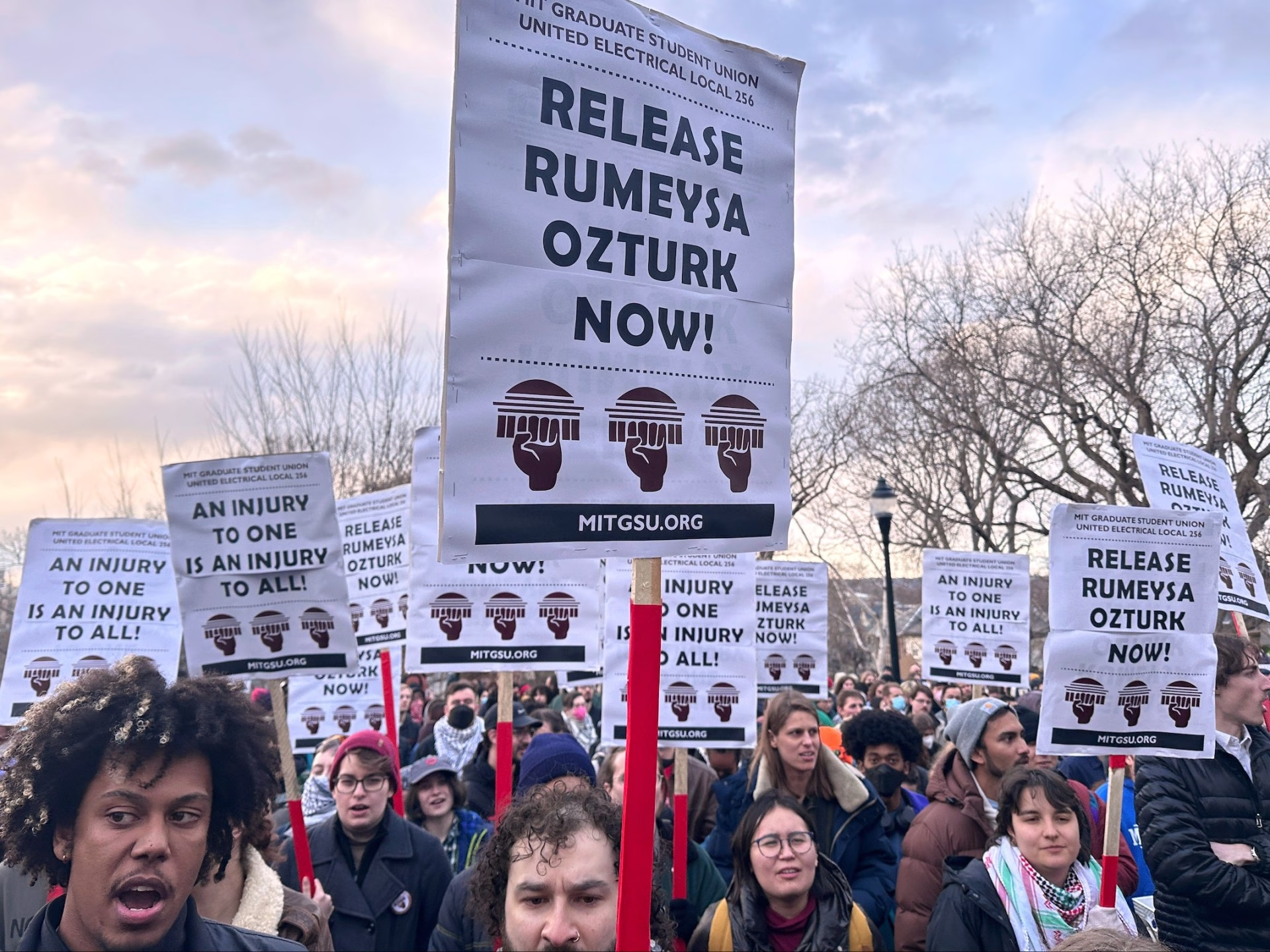Federal judge finds significant evidence of constitutional rights violations for detained pro-Palestine student.
In a ruling on Friday, District Court Judge William S Sessions determined that Ozturk, currently detained in Louisiana, has presented “significant evidence” to substantiate claims that her detention violated her rights to free speech and due process.
Ozturk was arrested and her visa was revoked in March. Supporters assert she was targeted over an op-ed she co-authored last year, criticizing Tufts University for rejecting a student government resolution that urged the school to divest from Israeli companies.
Sessions ruled that Ozturk’s case needs to be presented in court to evaluate these allegations.
“The Court concludes that this case will continue in this Court with Ms Ozturk physically present for the remainder of the proceedings,” he stated.
The judge instructed the government to transfer Ozturk by May 1 and scheduled a bond hearing for May 9 where she can argue for temporary release.
On March 30, Ozturk was detained near her home in Massachusetts, with surveillance footage revealing masked immigration officers grabbing her on the street without identifying themselves as law enforcement. Critics have characterized this as an abduction.
Ozturk’s student visa was revoked amid President Donald Trump’s administration crackdown on international students criticizing Israel’s actions in Gaza.
Sessions confirmed that the only evidence cited by the US government for detaining and deporting Ozturk is the op-ed.
“Her evidence supports her argument that the government’s motivation or purpose for her detention is to punish her for co-authoring an op-ed in a campus newspaper which criticized the Tufts University administration, and to chill the political speech of others,” Sessions concluded.
“The government has so far offered no evidence to support an alternative, lawful motivation or purpose for Ms Ozturk’s detention,” he added.
Judge Sessions emphasized that the First Amendment, which safeguards free speech, pertains to non-citizens residing in the US.
The legal proceedings before Sessions are a habeas corpus petition challenging Ozturk’s detention, not her potential deportation. Deportation cases are typically reviewed separately by immigration judges.
Advocates argue that immigration judges often align with the executive branch’s decisions. An immigration judge in Louisiana recently denied Ozturk’s request for bail.
The Trump administration claims the law empowers the government on immigration matters, including deportations, even when free speech and due process concerns are at play. Secretary of State Marco Rubio has invoked a seldom-used provision of the Immigration and Nationality Act to authorize these deportations.
However, Judge Sessions’ ruling potentially sets a precedent impacting not just Ozturk but also other students facing similar legal actions.
Sessions rejected the argument that the constitutional rights of detained immigrants can be disregarded due to administrative procedures.
The judge critiqued the government’s stance, seeing it as advocating for “practically limitless, unreviewable power to detain individuals for weeks or months, even if the detention is patently unconstitutional” through an immigration law.







